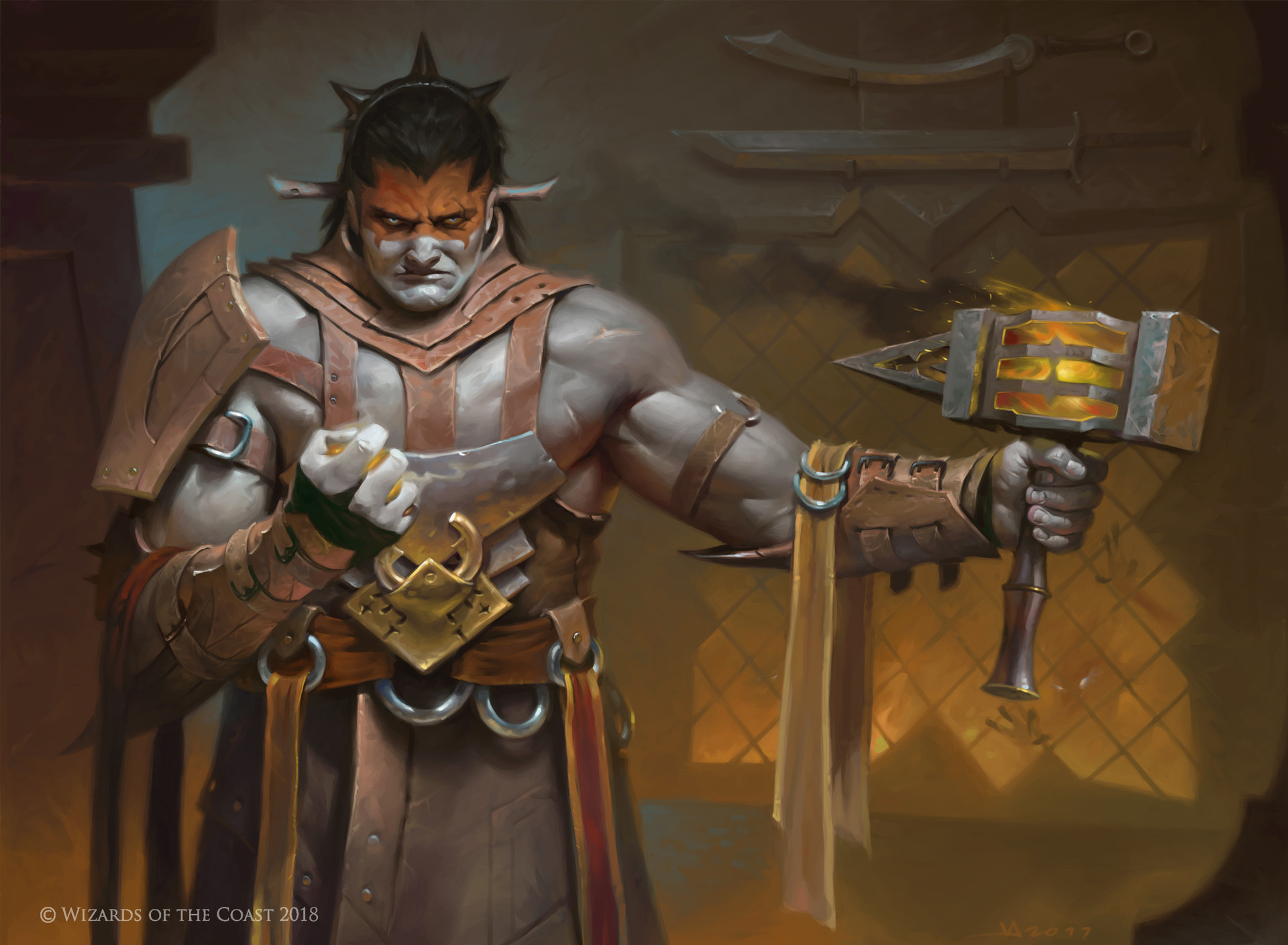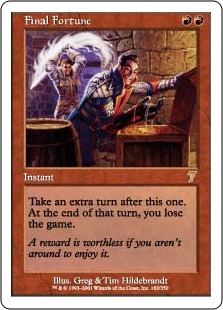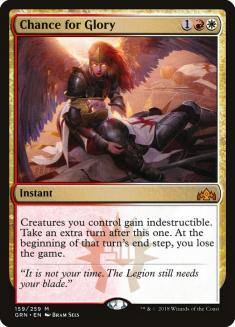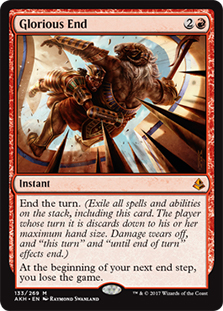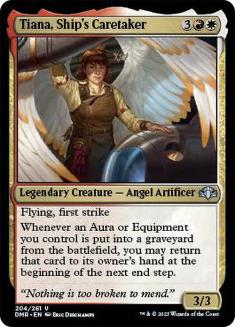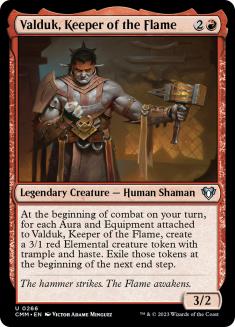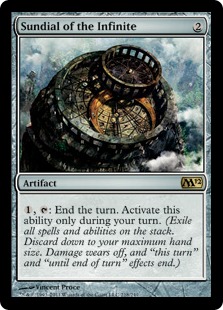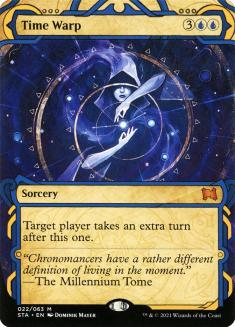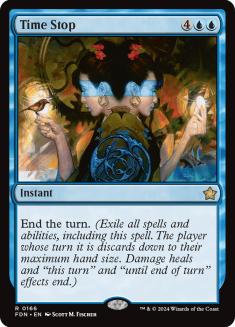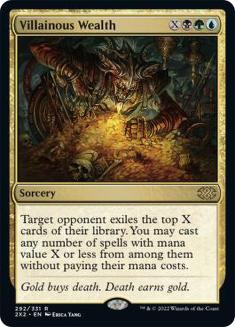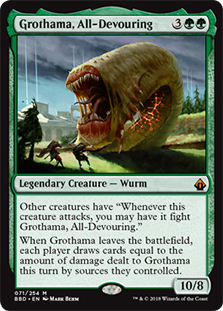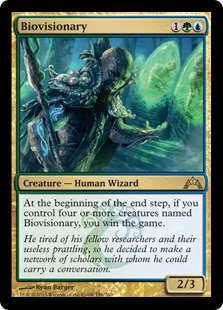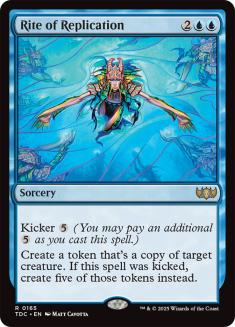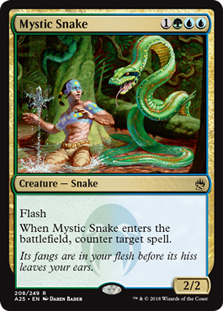If you regularly read my columns, you may have noticed I’ve started putting a certain class of cards into some of my decks I call “No Guts, No Glory!”
These are high-risk, high-reward cards that never would have seen the light of day in one of my decklists but for a spur-of-the-moment decision the day before SCG CON Winter last year. In the weeks before the event, I was getting my decks together with various updates and tweaks, and one of the decks I decided to take apart because it just wasn’t proving to be all that fun to play: my Tiana, Ship’s Caretaker deck.
Instead, I wanted to build a deck around Valduk, Keeper of the Flame. Wendy had a Valduk deck in Brawl when it was legal and the deck was a hoot, able to churn out many 3/1 attackers that were super-scary to face down, and we’d talked for a long time about building a Valduk deck in Commander.





Since Tiana had Equipment cards and red cards, I decided to put those aside in a stack, and started sifting through my commander stash for other cards to consider, starting with artifacts since, naturally, I’d want a bunch of Equipment. One of the artifacts I ran across gave me pause: Sundial of the Infinite.
This quirky card looks weirdly ineffective but does a lot of cool things when you start noodling with it. For Valduk in particular it was a way to keep the tokens around when normally you’d have to exile them at the end of your turn. You put the exile trigger on the stack, activate Sundial of the Infinite, and end your turn, clearing the stack and letting the tokens get to stick around. Seems worthwhile.
As I was going through my red rare box, in the very back of it I came across Final Fortune. Since I was already likely to play Sundial of the Infinite, it occurred to me that I could play Final Fortune too. Put the “you lose the game” trigger on the stack at the end of your extra turn, and then activate Sundial to end the turn. I was skeptical since the odds of putting together the combo seemed remote, but I threw it on my stack of cards to consider.
Flash forward to leaving for SCG CON: in the course of rushing around, I had not yet put together Valduk, but I pack the stack of cards with the idea that maybe I’d have time to build it at some point over the weekend. Also, in the course of rushing around, I end up leaving behind a box of four decks, so Thursday night I buckle down and start building Valduk. As I’m selecting my cards, I notice that my mana curve is off—I’m more than a bit lacking in two-mana cards, and I realize I don’t have too many left in my stack of cards that I’ve pulled. There are two: Final Fortune and Sundial of the Infinite. Okay, they’re going in!
The next day I’m playing Valduk. It’s Turn 5 or so and I’ve got a little bit of a battlefield presence, but nobody has really started throwing punches yet, and my friend Chris Shipper casts Emrakul, the Promised End. He targets me. I have Final Fortune in my hand. He takes control of me on my turn, looks at my hand, and starts to chuckle. He gives me a wry grin. “I totally should do this.”
I just sigh. I mean, I’d totally deserve it for putting that card in my deck, but he ultimately decides not to do it. So I get a little grumpy about my decision to take a chance on the card, but later it occurs to me: If Chris had cast the card for me, and I’d have lost on my next turn… it would make a helluva story! I mean, even him deciding not to do it makes a halfway funny story.
Later in the weekend I’m playing Valduk again and the game is a slugfest that goes on a really long time. So long that one of the four players has to leave for an appointment. I’m finally ready to make my move, with enough equipment on Valduk to take out one of my remaining opponents during my attack. I choose the one I feel is most likely to have a mass sweeper spell on his turn and attack.
He casts Cylconic Rift overloaded. Crap. You know the drill—we’ve all had inopportune Cyclonic Rifts spoil our day.
But… I’ve got Final Fortune in my hand. I’m not entirely sure I can pull it off but screw it—let’s go for it! I redeploy some of my cards, and with my very last two red mana I cast Final Fortune. I untap and take another turn. I draw another piece of cheap Equipment so I’m actually able to set everything up to kill both of my opponents on my attack step and win the game before I have to lose.
Boom! I never get tired of telling that story.
Commander as a format, conceived of and carefully cultivated by the Rules Committee all these years, is supposed to be a fun and social game where everyone can sit down and have a good time each game. And what makes a game even better is when there’s some play that’s so cool, so memorable, that people will want to talk about it later. Those are the sort of games I strive for, and I’m here to encourage you to strive for that too. To do that, there are two things you need: first, put cards in your deck that lead to memorable plays, and second, play in a way that leads to memorable plays.
The first part is relatively easy—we all know the sort of big and splashy cards that do cool things in Commander, and we’ve seen a lot of them over the years. However, I do think there has been a lot of focus lately on optimization and efficiency in Commander, on leaning hard on the very best cards for the mana, and on avoiding anything that might have something considered to be a downside. I see a lot fewer big and splashy spells than I used to, and a lot more of the same ol’, same ol’ good stuff cards. I encourage you to sprinkle in cards that will surprise and delight your opponents, things they might not have seen cast in years, or not ever. Cards that make your opponents ask to read what they say.
If someone casts Time Warp, everyone just rolls their eyes. Oh boy, here we go. Five-mana sorcery, take another turn, wake me up when we get to do something. But if someone casts Final Fortune—hello! Suddenly everyone’s on a knife’s edge—is the person just desperate, or can they actually win this turn? Since Final Fortune is an instant, the player can interject their extra turn out of regular turn order, so that’s an added layer of weirdness!
Time Stop is a fantastic card, and ending someone else’s turn is sometimes the only way you can stop someone from winning the game. But honestly, if someone’s attempting to win the game, and the blue player has six mana open, you know that there’s a pretty good chance they’ll be able to do something to stop them.
Glorious End, though? Nobody is going to worry about three mana open from the red deck when they’re trying to go off. So there is the table’s Big Bad, getting ready to kill everyone, and you say, “Wait, I have a response… Glorious End.” Everyone is going to look at you with eyes blinking, stunned.
End.
The.
Turn.
I mean, if you were going to lose anyway, why not? At least this way, everyone knows what Big Bad was trying to pull off and you get a turn to go down swinging, the Hero!
Plus, you’ve got an awesome story to tell! Even if you end up losing to the “you lose the game” trigger, you’ve still won, right? And there’s the added value that other people might even tell that story too, because it was so unique and cool.
There are tons of cards that do cool things that can lead to excellent stories that don’t necessarily make you lose the game too. A lot of times they’ll be highly variable, like Villainous Wealth. Since you’ll be casting cards that were on top of target opponent’s deck, you can’t really plan on what’s going to happen when you put that in your deck, but one thing that’s for sure is that it’s going to be a pivotal part of any game it’s played in.
Another example is Grothama, All-Devouring. I have a Grothama deck, and it’s designed for me to leverage the card to its fullest… but sometimes one of my opponents pulls off a play where they end up drawing a ton of cards off Grothama, which sometimes leads to them winning the game. If an opponent draws thirteen cards when they cast Blasphemous Act, that’s an epic play, even if it’s not your epic play! And that’s why I love my Grothama deck so much: it’s the sort of card that leads to big crazy plays for all the people playing the game.
Which leads me towards the notion of playing each game with an eye towards big plays. In competitive Magic, where winning the game is the most important, everything you do is keeping that goal in mind. You want to be mana-efficient and constantly look for ways to get an advantage. But in Commander you can do things differently. For instance, if you’ve got a removal spell that could set an opponent back on mana, so they’ll be stuck unable to cast anything for a few turns, in competitive Magic you’d do that without hesitation. But in Commander, having a player stuck doing nothing isn’t very fun.
Here’s another example. At SCG CON a few summers back I was playing a game that featured a lot of interaction and eventually the game had dragged on to the point where none of us had much of a battlefield presence and no one was anywhere close to winning or losing. One opponent said, “Oh well, I’m going to try it,” and cast Biovisionary, followed by Rite of Replication with kicker, targeting Biovisionary.
I had one card in my hand.
Naturally, the optimal play was to cast Mystic Snake and counter Rite of Replication, which is what I did. The game went back to its grind and eventually we just called the game because it was pushing an hour and a half long with no resolution in sight. And it occurred to me later that letting the Rite of Replication resolve and my opponent win with Biovisionary would have been an epic way to end that game, but instead me doing the optimal play led to a dull game that left no one satisfied in the end.
Speaking of Mystic Snake, it’s involved in another story I’d like to share. At another SCG CON I finally got to play my first game of Commander with Jeremy Noell of Commander VS fame. One of our opponents cast an Armageddon relatively early in the game and left the rest of us without much going on since we hadn’t been sandbagging any lands. Unfortunately, they didn’t cast Armageddon with a win condition on the battlefield, so the game dragged on for a while. Jeremy luckily was able to recover much faster than the rest of us and eventually had enough mana to cast Villainous Wealth targeting the Armageddon player, which would have both been sweet, sweet revenge and likely put Jeremy so far ahead that victory was assured.
Me, I had just played my fourth land, and guess what card I had in my hand?
I countered Villainous Wealth with Mystic Snake, and eventually was able to cobble together a win with that Mystic Snake punching down folks with exalted triggers from Rafiq of the Many and Finest Hour. But when later I reflected on the game, a better resolution would have been to let Jeremy’s Villainous Wealth resolve. It’s the sort of epic card that leads to really cool plays.
Yes, winning a game of Commander feels good most of the time, but you know what feels even better? When the game ends in a big epic play that at least a few of the players will want to recount to their friends later, and that’s regardless of whether it’s you or one of your opponents. If each player got to play Magic and have a good time, then the game is a big win in my book, no matter who eventually chalks up the victory.
With that sort of outlook, I “win” just about every game of Commander I sit down to play. And that’s the point of view I encourage everyone to try out and adopt. Put cards in your deck that lead to awesome plays that create epic stories and play in a way that encourages that sort of ending to each game you play.
Tell me, what are some of your favorite cards are that lead to awesome, epic games of Commander?
Do me a solid and follow me on Twitter! I run polls and get conversations started about Commander all the time, so get in on the fun!
Visit my Decklist Database to see my decklists and the articles where they appeared!

